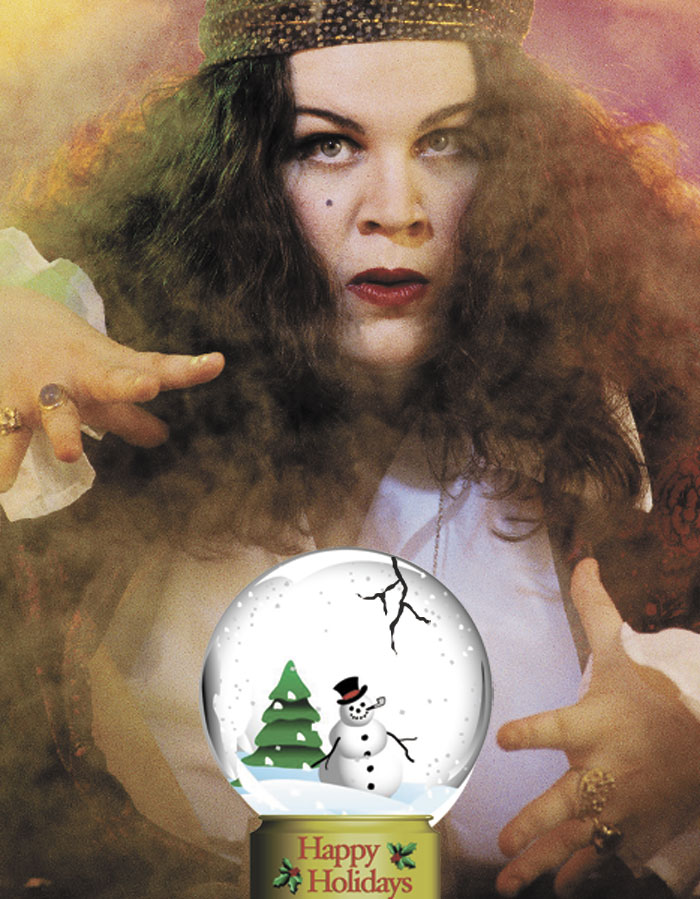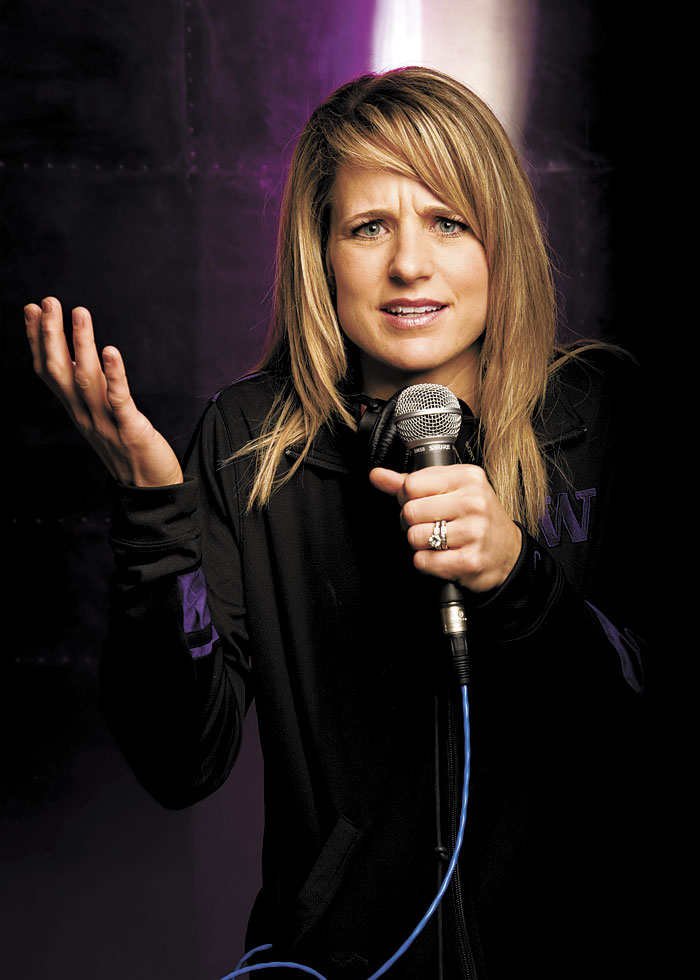Last year, when Alexandra Chauran sought to teach her students at the Kent Phoenix Academy about the benefits of composting, she turned to the King County Solid Waste Division for help. Chauran ended up using the agency’s curriculum to help her students start a vegetable garden and donate the fruit—or in this case veggies—of their labors to a local food bank.
After that experience, Chauran says, she wanted to get involved with KCSWD’s Waste Free Holiday program, which solicits small businesses to donate their services at a reduced rate to be distributed as gifts during the holidays, in the hope that grandmothers and other gift-givers will replace ugly sweaters with experiences that generate less trash. Chauran, who left the Kent School District after last year, sought to donate her skills as a tarot-card reader, a crystal-ball diviner, and a tea-leaf reader to the program. She was turned down.
“Thank you for your application,” Megan Sety of the division’s Recycling and Environmental Services department wrote to Chauran on Aug. 11. “However, we are not able to include offers of this type because of their controversial nature.”
When pressed, Sety wrote in subsequent e-mails that fortune-telling is controversial because some people do not believe in such activities. “We have decided that businesses that deal primarily with psychic phenomena are not an appropriate fit for a county program,” she wrote to Chauran.
“I do birthdays [and] bridal showers,” Chauran counters. “It’s not like I’m a pornographer.”
Chauran notes that program participants include yoga studios and wellness spas, among other types of business. As a teacher, Chauran says, she was not allowed to include yoga in her curriculum because some parents saw it as religion. So, she wonders, if yoga is included in the county program, why not fortune-telling?
Sety explains that yoga isn’t as controversial as psychic phenomena, adding that program participants are divided into eight categories: dance, fitness, museum/visual arts, music, sports and recreation, rest and relaxation, restaurants, and theater. When the Waste Free program started 12 years ago, organizers had to seek out businesses to participate. Now, Sety says, solicitation is no longer necessary. Hence some businesses, such as financial planners and tutors, are turned away because they’ve been deemed inappropriate for the program.
“We try to limit it to something you would see on a wish list,” Sety explains.
While fortune-telling may appear on someone’s wish list, Sety says the discipline is too controversial to include. “We could see a lot of reactions from the program and they could be very positive or they could be very negative,” Sety says. “We want the program to be successful, so we have to worry about how it is perceived in the public. It may be construed as an endorsement, although it is not.”
A cat psychic was turned down for the same reasons, Sety notes. Nevertheless, Chauran says she’ll apply again next year.






